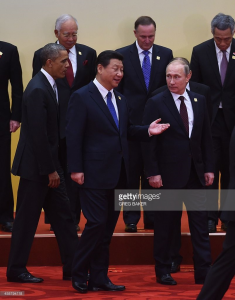Reloading Nigeria’s Risk Baggage in 2017, (Part 3)
The third and the conclusion of a three-part Special Report discuss the ‘Battleground Africa’ risk baggage in relation to Nigeria. In bringing up the conclusion here even before the last baggage is discussed, the argument of this report is that Nigeria has such a long way to go unless something drastic happens. This is because it is unimaginable how any country can exit the orbit of mediocrity without a competent state, a self-conscious elite, a binding national iconography, a succession tradition that produces informed and balanced political leadership, a business model that serves national interest and a deliberate space for critical or alternative discourses. All these six are problematic in Nigeria but without those who should worry about it doing so in any serious manner beyond lamentation. As short as that!
Recall that the seven risk baggage considered most problematic and discussed were the Crisis of National Self-Understanding; the Rising Elite Fragmentation and the ‘Iron Law of Oligarchy’ in Nigeria; Cabalistic Entrapment and the Unscrambling of the Buhari Promise and the Demise of the Left in Nigerian Politics. Others were the Decentering of the State and the Mismanagement of Anarchy, ‘Oil and Instability’ and ‘Battleground Africa’ – Editor.
Battleground Africa as a Risk Baggage for Nigeria
It all started or, better still, acquired momentum, with an academic essay titled, “The 21st Century Scramble for Africa”, published in 2006. Written by Margaret Carol Lee, an African-American Studies academic at the University of North Carolina, the paper opened up the subject matter to multiplicity of interpretations, some going as far as linking it to Hitler’s statement that Africa is the playground of the West and the East. Her key claim is the convergence of old and new global powers: the United States on the one hand and China, Brazil and India on the other hand, on Africa’s resources and market. The two set of resources in question are energy, (oil) and mineral resources. So, her paper is different and predated Lise Namikas’s work, for example, which actually used the Battleground terminology but in capturing what the US and the defunct USSR did in the DRC between 1960 and 1965. Her concept of Battleground Africa relates more to the notion of Africa as where China as the US’s bogeyman since the Cold War is. And in response to which the US has reconstituted Africa into a zone of geopolitical primacy, beginning with the coming into being of AFRICOM which was announced on the day then Chinese president, Hu Jintao, was rounding off an African visit.

Leaders of great powers in the 21st Century Scramble for Africa

President Buhari in the midst of leaders of the great powers in 2015
So, 21st Century Scramble for Africa became established as the framework for understanding the return of great powers to Africa, similar to what happened in the 19th century except that this time, it has gone beyond Europe to Asia, (China, India, Japan, Malaysia, South Korea); Latin America, (Brazil) and the Middle East in addition to the US and Russia, each of them holding a summit for Africa for that purpose. It is a huge competition, involving deployment of military, diplomatic, discursive power resources by the US and China, effectively turning the continent into battle ground – military bases, drones warfare, artificial wars and so on.
For Nigeria, some people are already arguing, for example, that Boko Haram was a way of fulfilling the prediction about Nigeria breaking up in 2015 which they connect to a strategy of denying China the benefits of its in-road into Nigeria. Others cite France’s intervention in Mali and the NATO operation against Gaddafi in Libya in 2010. The evidence do not quite add up but ‘speculations’ such as these cannot be dismissed because great powers do not fight each other head on. They have to find a way of fighting each other through proxy wars. Who knows what conscious and unconscious destabilisation plans are in the offing, especially by some of the powers that have been much longer in Africa and have carried out dirty tricks on the continent, especially during the Cold War. Or under counter-terrorism cover.
And even when they do not plan destabilisation, they must take away natural resources, oil and mineral resources in particular. In the context of the confused thinking posing solid to liquid minerals, it means 21st Century Scramble for Africa drives the continent from one hopelessness to another in which only the great powers can be the winners. For, in so far as Africa/Nigeria lack the technology to process and add value to natural resources, solid or liquid, it is the loser. There is the Africa Mining Vision, for instance, generally held to be a radical document capable of structurally lifting Africa. But who is hearing about the vision anywhere in Nigeria which abundantly blessed in terms of solid mineral endowment?



























